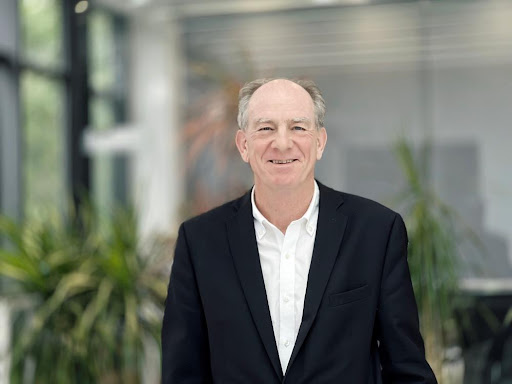
As the world grapples with carbon emissions, Australian companies are collaborating with leading industry players from around the world to try and find solutions to the growing climate crisis.
"Through cutting-edge advancements and collaborative partnerships, we are looking to play a pivotal role in driving a cleaner, greener future in aviation and aerospace," said Jay Upton, CEO of Sprintex.
In 2022, aviation accounted for two percent of global energy-related CO2 emission, having grown faster in recent decades than rail, road or shipping.
Against that backdrop, the global passenger fleet is forecast to increase by 86 percent, or around 22,000 aircraft, by 2041 to meet growing demand for air travel.
Sprintex designs and manufactures air compressors for hydrogen fuel cells (HFC) which it says provides more efficient, reliable and power-dense solutions for the HFC industry.
The company collaborated with the Technical University of Applied Sciences Würzburg-Schweinfurt Germany to win the Sustainable Aviation Award at the AERO 2023 Show.
It has signed several Non-Disclosure Agreements (NDAs) with companies manufacturing e-VTOL (electric vertical takeoff and landing) air taxis and drones.
Sprintex has also partnered with UK-based Aeristech, a global leading technology company which makes advanced electric motor and controller systems. It has signed an agreement to supply its high-speed electric compressors to Aeristech for its hydrogen fuel cell applications.
“We’re in discussions with other aviation and aerospace companies as well who’ve actually cold-called us to ask whether we can supply our e-compressors,” Mr Upton said.
He said the enquiries are quite varied, such as for hydrogen powered air taxis and drones, to small fixedwing style personal aircraft, larger commuter or business aircraft as well as cabin pressurization and cabin HVAC (heating or cooling) compressors.
“In the aviation sector, size and weight is critical,” Mr Upton said.

“Our fuel cell compressors have been tested against other units and are smaller, lighter and more power-dense, and we’re now becoming the preferred choice for the aviation and aerospace industries.
"The end game for all of this is to be able to carry out zero emission flights, and this will start with smaller aircraft over shorter distances," he said.
Earlier this month, Sprintex announced on the Australian Securities Exchange (ASX) that it had launched a successful capital raise of A$1.3 million from shareholders and company directors to accelerate production. It also plans to raise a further A$500,000 through a security purchase plan (SPP) for existing shareholders with a closing date of August 7.
A hydrogen fuel cell compressor is a crucial component of a hydrogen fuel cell system. In hydrogen fuel cells, hydrogen gas is combined with oxygen from the air to produce electricity, with water vapor as the only byproduct.
However, the hydrogen used in fuel cells needs to be at a specific pressure for efficient and optimal performance. This is where the hydrogen fuel cell compressor comes into play.
The global hydrogen aircraft market grew from US$1.06 billion in 2022 to US$1.26 billion in 2023, which is a compound annual growth rate of 18.5 percent. It is expected that by 2027 it will grow by 22.5 percent annually to US$2.83 billion.
This market currently includes:
> Smaller business jets with a range of more than 100km
> Air Taxis with a range of 20 to 500km
> Unmanned aerial vehicles (drones) with a range of up to 20km
> Larger commercial aircraft with cabin pressurisation, air conditioning and driving turbofans
Earlier this year, ZeroAvia recently flew the largest hydrogen-electric aircraft ever built in the UK, marking a significant milestone in advancing hydrogen aviation.
“Sustainability in the aviation sector is of paramount importance. Clean energy production from hydrogen fuel cells has to be the future of the industry.”
Mr Upton also pointed out that as the drone delivery landscape rapidly evolves, there is enormous potential to achieve carbon-neutral drone deliveries, which will be more environmentally friendly than traditional fuel-burning transportation methods.
“It will be much better for the environment to have drone deliveries using hydrogen fuel cells only, with no emissions, instead of having ground vehicles criss-crossing cities, burning fuel and waiting in traffic to deliver things.”
About Sprintex:
Sprintex is a clean air compressor engineering, research, product development and manufacturing company. Sprintex designs and manufactures electric and mechanically driven compressors for use in aviation and aerospace, wastewater treatment, mining and telecommunications and automotive industries. Headquartered in Perth, Australia, the company has a R&D and manufacturing base established in the Chinese city of Souzhou, along with a manufacturing plant in Malaysia and a sales and distribution center in the USA.
Media Contact
Company Name: Sprintex Limited
Contact Person: Ben Hall
Email: Send Email
Country: Australia
Website: https://www.sprintex.com.au/





